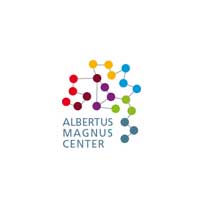Cologne Model of Structured Doctoral Studies
The responsibility for the doctoral process and the supervision of its doctoral candidates is a core task of the University of Cologne (UoC) in order to prepare the doctoral candidates in the best possible way for their doctorate but also for later career steps within and outside academia.
For an effective implementation of these processes, the Albertus Magnus Center (AMC) has developed the Cologne Model of Structured Doctoral Studies in cooperation with the faculties.
With the Cologne Model of structured doctoral studies, the UoC commits itself to common guidelines to ensure quality doctoral supervision for all our doctoral candidates, regardless of their faculty affiliation, form of doctoral studies, and funding. As a joint project of the faculties, the goal of the Cologne Model is a transparent and comparable organisation of the doctoral phase. At the same time, it takes into account the specifics of the faculties and subjects and supports the doctoral regulations of the faculties.
The Cologne Model of structured doctoral studies comprises the following seven structural elements:
Doctoral supervision
First and foremost, our faculties and institutes of the university ensure the subject-related as well as the interdisciplinary and professional framework for high-quality supervision. If possible, other supervisors (dissertation committee or thesis advisory committee) are involved in addition to the first supervisor. The faculties ensure a transparent procedural flow of the entire doctoral process. In some cases, this can also take place in structured doctoral models of the faculties.
Supervision agreement
A supervision agreement represents an important element of good supervision for your doctorate. It should be concluded in the course of your first year of doctoral studies. The Albertus Magnus Center (AMC) provides a legally approved template based on the recommendations of the German Research Foundation (DFG) and the German Science and Humanities Council (Wissenschaftsrat). Faculty or program-specific supervision agreements may supplement this template on an individual basis. For more information on faculty-specific supervision agreements, please contact your faculty's graduate facilities.
Doctoral programs
In addition to an excellent scientific education, the focus is on preparing doctoral candidates for a variety of careers within and outside of science. The Cologne Model provides numerous opportunities for this:
- introductory events on the doctoral process and on good scientific practice
- participation in scientific networks (symposia, seminars, class meetings, etc.)
- participation in advanced training and seminars on subject-specific and interdisciplinary key qualifications
- counseling opportunities at the UoC (e.g. on career development, discrimination, ombudsman services, psychosocial counseling)
Internationalisation
As a globally oriented research university, we at the UoC seek cooperation with the best researchers worldwide and recruit the early-career researchers from all over the world. Therefore, we take the international and the variety of cultural aspects into account when designing the doctoral education structures. International aspects also play an important role in interdisciplinary qualifications (e.g. by offering courses in English). International doctoral models such as cotutelle procedures, doctor europaeus or joint doctorates are explicitly promoted. For further information on the possibilities, please contact the graduate programmes of your faculty.
Quality assurance
The Cologne Model supports the application of general quality standards in doctoral supervision through e.g.:
- transparent and institutionalised procedures to ensure scientific integrity
- active pursuit and communication of the rules of good scientific practice by the faculties in all aspects of research as well as in the supervision of doctoral candidates
- transparent decision-making procedures (e.g. in personnel decisions, funding issues and conflict resolution) within the faculties
- access to an independent ombudsman system at faculty and university level for all doctoral candidates
Graduate Schools
Institutional responsibility for doctoral programmes is defined in the doctoral regulations of our six faculties. To provide optimal support for doctoral studies, all faculties have established central graduate schools that ensure comparable quality standards while taking into account subject-specific characteristics and faculty-specific regulations.
Albertus Magnus Center
The AMC works in a network with the faculty-wide graduate schools of the UoC as a central information, training and advisory center for all those interested in doctoral studies as well as doctoral candidates and postdocs of the UoC. The aim of the AMC is to provide effective support above all during the transition phases between career steps.
Read the interview with Prof. Dr. Dr. h.c. Andreas Speer on the background, goals and contents of the Cologne Model.
Interview with the main author on the Cologne model of structured doctorates
Cologne Model of Structured Doctoral Studies
